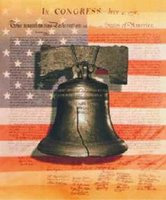
|
 |
 |
 Editorials | Issues | June 2008 Editorials | Issues | June 2008  
Analysts Disagree on Whether America Faces Imminent Decline
 Kevin McCandless - CNSNews.com Kevin McCandless - CNSNews.com
go to original


| | Recent essays in the media have predicted the end of a world centered around the United States. | | |
London - Analysts in the United States and Britain are challenging the notion that America's dominant position on the international stage is under threat.

With the price of oil reaching a record high, China emerging as an economic powerhouse, and the war in Iraq now in its sixth year, prominent American and European voices have begun to warn that America has entered into a terminal decline.

Recent essays in the media have predicted the end of a world centered around the United States, while in France, Foreign Minister Bernard Kouchner said in March that "the magic is over" for the U.S.A.

For Kouchner, America will never be able to fully repair the damage it has done to its international influence by the 2003 invasion of Iraq and by the Bush presidency.

Council of Foreign Relations president Richard N. Haass, writing in the council's publication Foreign Affairs , believes that the U.S. will not be able to dominate the international system as it has in the past. While it will remain the single largest power in the world, it will have to negotiate its way among a host of other strong nations and international actors.

However, some analysts charge that this is simply wrong and a misleading reading of short-term circumstances.

Speaking last week at Chatham House, a London think-tank, American political scientist Robert Lieber said that American fundamentals remain sound.

He argued, among other things, that the size and dynamism of the $13 trillion-plus U.S. economy remains unmatched by the rest of the world.

The higher education system in the United States is still superior to that of any other nation, and despite the conflicts in Iraq and Afghanistan, military spending is at 4.2 percent of the American gross domestic product, which is "very small" compared with the situation during the Cold War.

In particular, Lieber said, one of the enduring strengths of the country was its ability to adjust dramatically to new and trying times, such as during the Great Depression. "It's the flexibility and adaptability of America that remains its saving grace," he said.

Lieber, who teaches at Georgetown University, does not believe that the nations mentioned as possibly replacing the U.S. as dominant powers are likely to do so.

Although the European Union has become an economic superpower, it remains "a political and military dwarf," unable to coordinate action among its 27 member nations, he said.

Russia has become a corrupt "authoritarian" petro-state where the average life expectancy of citizens has dipped below 60, while countries like India, Japan and even China are locked into mutual economic dependency with America.

If China ever emerges as a great power competitor, he said, it will not be for at least a few more decades.

Lieber said talk of an American decline goes back to the 18th century and has popped up periodically ever since, through the Civil War to the turmoil of the 1960s up to the present.

While the current U.S. economic situation may be "very sticky," he said, he would bet on those talking now about American decline being wrong again.

Alan Dowd, an American writer and political specialist, said talk of American decline seemed to "pop up" every decade, with academics, by and large, apparently "fixated" on the idea.

Yet these same academics, he said, "never seem to self-evaluate and look at where they were wrong before."

James Boys, the founder of The Resolute Group, a British think-tank specializing in the Anglo-American relationship, said part of the problem is that academics and journalists alike like to talk about dynamic change.

For them, he said, things either have to be in terminal decline or "better than ever."

Boys said he did not believe that America was in terminal decline, although during the past seven or eight difficult years for the U.S. it has been seen in that light by many of those outside. In part, he attributed that to the fact that President Bush's style has often grated on European audiences. | 
 | |
 |



